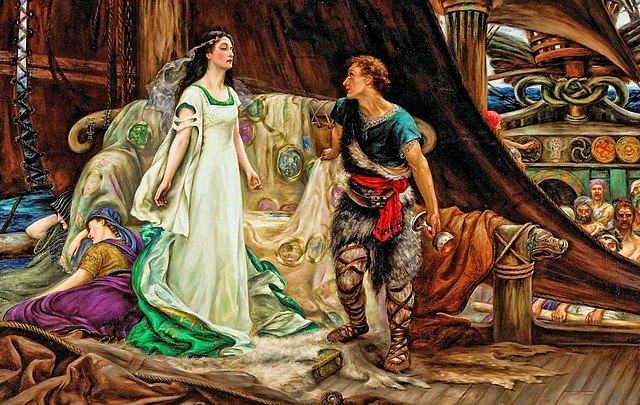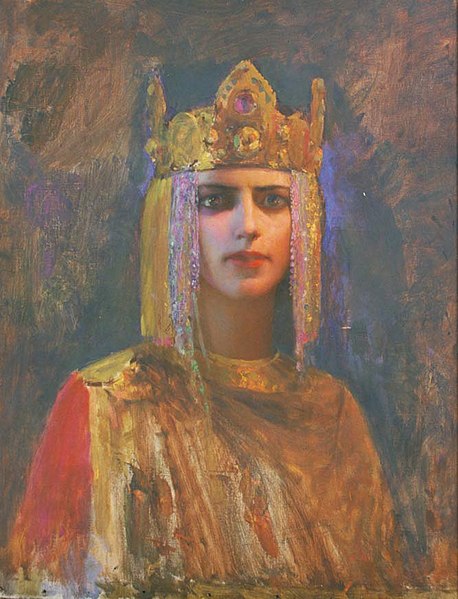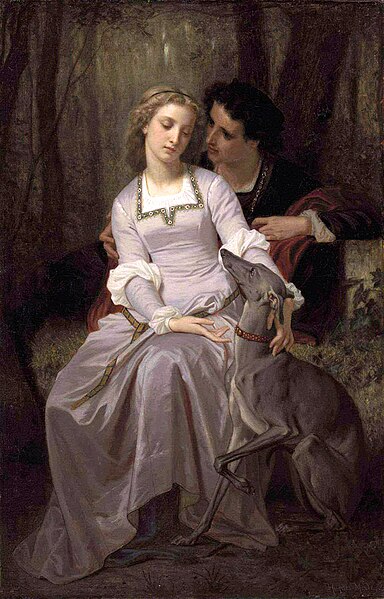Tristan, also known as Tristram, Tristyn or Tristain and similar names, is the hero of the legend of Tristan and Iseult. In the legend, he is tasked with escorting the Irish princess Iseult to wed Tristan's uncle, King Mark of Cornwall. Tristan and Iseult accidentally drink a love potion during the journey and fall in love, beginning an adulterous relationship that eventually leads to Tristan's banishment and death. The character's first recorded appearance is in retellings of British mythology from the 12th century by Thomas of Britain and Gottfried von Strassburg, and later in the Prose Tristan. He is featured in Arthurian legends, including the seminal text Le Morte d'Arthur, as a skilled knight and a friend of Lancelot.
Tristan and Isolde (Life) by Rogelio de Egusquiza (1912)
"Tristain's" attributed arms
Scenes from the story of Tristan on 13th-century tiles from Chertsey Abbey
The Tristan Stone in 2008
Tristan and Iseult, also known as Tristan and Isolde and other names, is a medieval chivalric romance told in numerous variations since the 12th century. Based on a Celtic legend and possibly other sources, the tale is a tragedy about the illicit love between the Cornish knight Tristan and the Irish princess Iseult. It depicts Tristan's mission to escort Iseult from Ireland to marry his uncle, King Mark of Cornwall. On the journey, Tristan and Iseult ingest a love potion, instigating a forbidden love affair between them.
Tristan and Isolde by Herbert Draper (1901)
The Blonde Yseult by Gaston Bussière (early 20th century)
Tristan and Isolde by John Duncan (1912)
Tristan and Isolde (with Husdent the dog) by Hugues Merle (c. 1870)








